Suan Dusit University recognizes that “Clean Water and Sanitation” is not merely a basic necessity but a fundamental pillar of sustainable development for both the University and its surrounding communities. This initiative reflects the University’s commitment to responsible resource management as a leading educational institution. In particular, the University emphasizes the following key aspects:
- Water Consumption: Demonstrating efficiency in water usage and implementing measures to reduce consumption in order to achieve water conservation goals.
- Water Discharge: Ensuring that all wastewater is properly treated to meet quality standards before being released to public water systems, thereby protecting natural water sources and the environment.
- Water Access: Providing safe and free drinking water to all members of the university community to promote health, well-being, and equitable access to essential resources.
environmental-quality-management-policy-2565.pdf
This initiative, therefore, is not merely a matter of legal compliance but a demonstration of responsible and prudent stewardship in resource management. It also reflects the University’s genuine commitment to outreach, ensuring that sustainable water management practices and services are extended to all sectors of the community through the following key initiatives:
1. Efficient Water Management
Suan Dusit University is committed to becoming a model institution in the efficient and responsible use of water resources — from systematic monitoring and evaluation to the adoption of water-saving technologies across all facilities.
- Measurement and Reporting: The University systematically monitors and records water usage data, reporting a total annual water consumption of 285,340 cubic meters, with an average of 26.53 cubic meters per person per year. This database serves as a key foundation for strategic planning and resource conservation initiatives.
- Water Conservation Policy and Technology: Suan Dusit University has implemented a policy in accordance with the Announcement of Suan Dusit University on Environmental, Energy, and Resource Quality Management, dated 18 August 2022, Clause 7, which promotes and enhances efficiency in energy and resource management. The policy supports the use of renewable and clean energy, as well as the improvement and construction of buildings designed to optimize water and energy efficiency.
This commitment is reflected through:
- (1) Resource Management: A holistic approach that integrates water and energy management to maximize resource efficiency.
- (2) Building Modernization: The installation of water-saving equipment in both existing and new buildings, ensuring that facility operations minimize environmental impact and optimize water use.
Water-saving fixtures installed throughout the University comply with Thai Industrial Standards (TIS) — such as low-flush toilets and automatic faucets that regulate water flow according to actual use. All faucets meet TIS 2067-2552, requiring a flow rate of no more than 6.0 liters per minute and no less than 0.50 liters per minute, ensuring both functionality and conservation.
This initiative represents a cornerstone of Suan Dusit University’s long-term strategy to reduce water consumption and promote sustainable resource use.
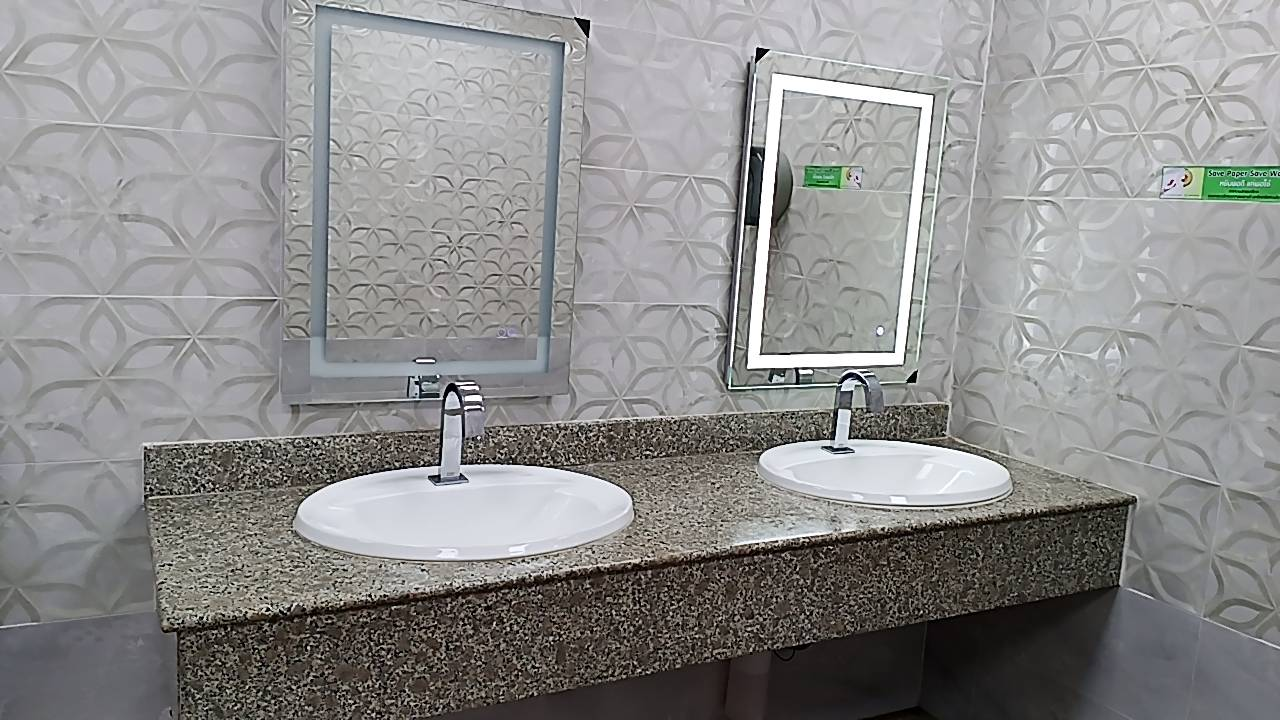
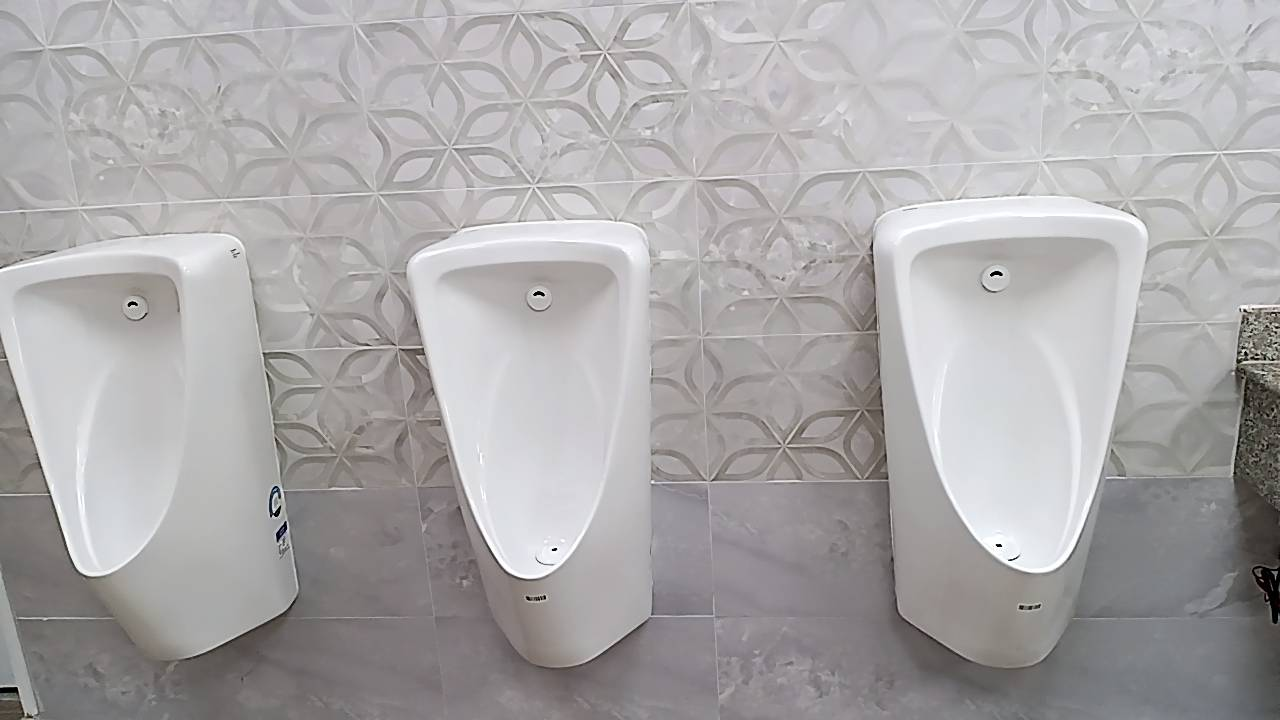
2. Water Recycling & Treatment
The University accords the highest priority to ensuring that all wastewater discharged complies with national effluent quality standards and does not result in any negative impact on the surrounding ecosystems or the environment.
- Segregated Treatment : Segregated Treatment Systems: Suan Dusit University has designed wastewater treatment systems tailored to different sources of wastewater to ensure effective and safe management:
(1) Office Buildings: Wastewater is treated using both Activated Sludge systems and Septic Tanks (anaerobic biological treatment).
(2) Food Production Areas: Wastewater undergoes a two-stage treatment process, beginning with grease traps for initial filtration, followed by aerobic biological treatment using microorganisms.
(3) Laboratories: A specialized treatment system is employed to remove hazardous chemicals, after which the water passes through sand filtration before being safely discharged into the environment.
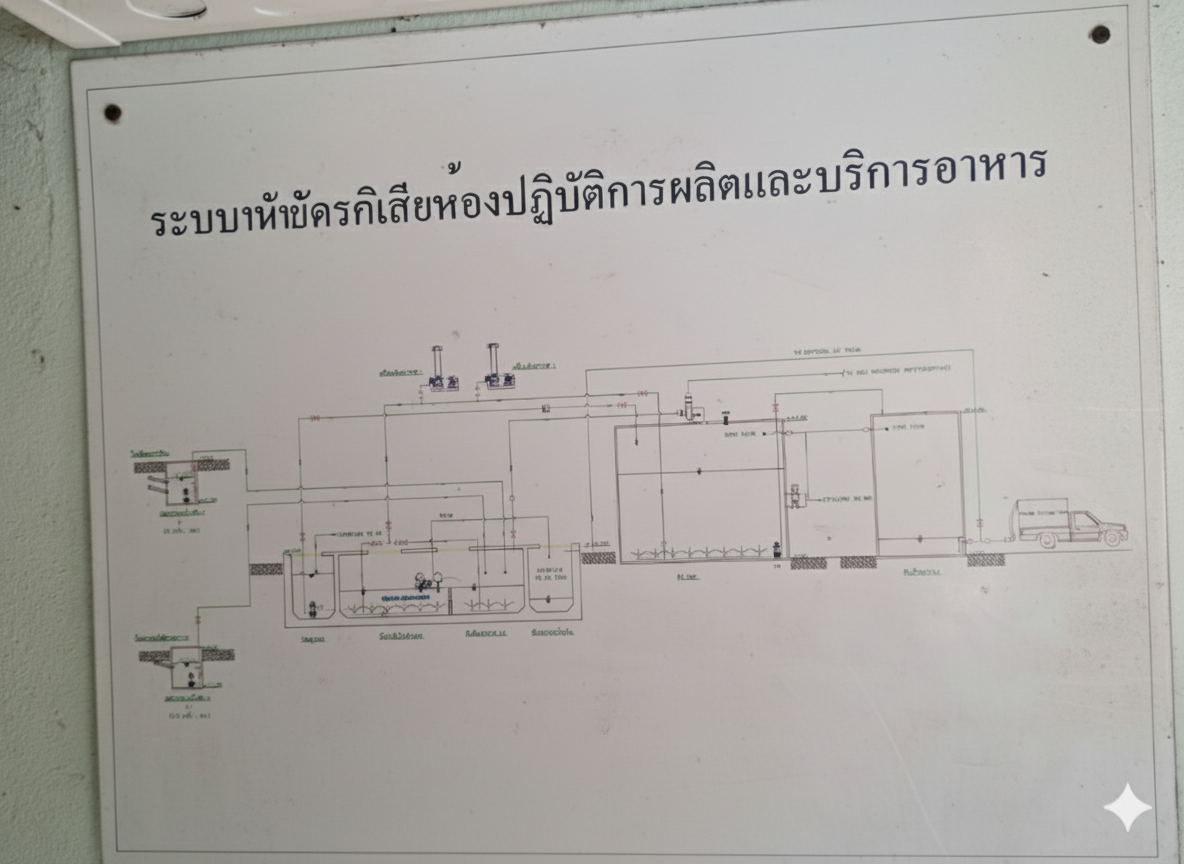
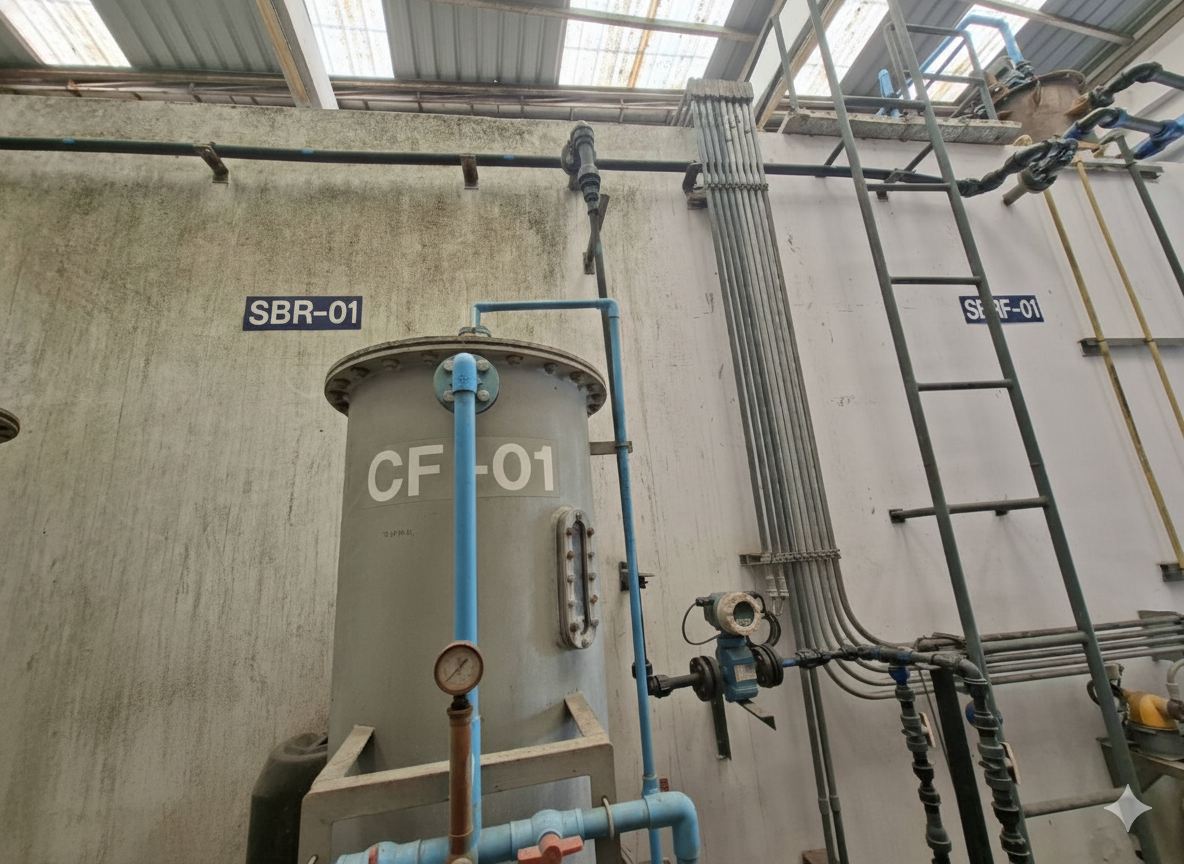
Wastewater Management Operations
The University manages wastewater from the source before collecting it into treatment systems located at various points within the premises and discharging the treated water into public drainage channels.
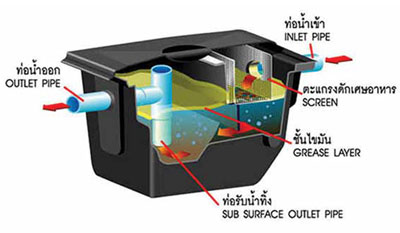

Remove food scraps before washing the dishes.
Install grease traps for preliminary wastewater treatment.
Wastewater treatment systems are implemented in all areas, with regular monitoring and performance evaluation.
Development of staff skills and expertise
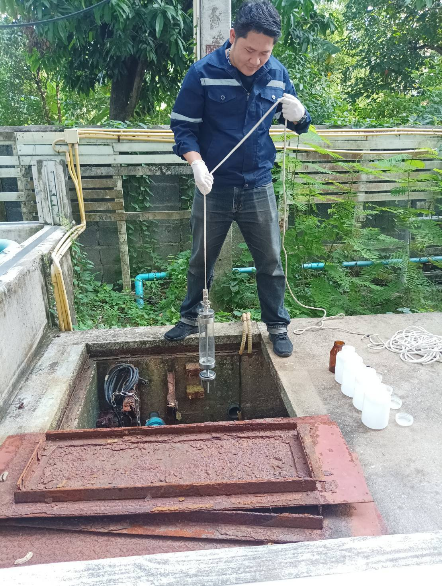
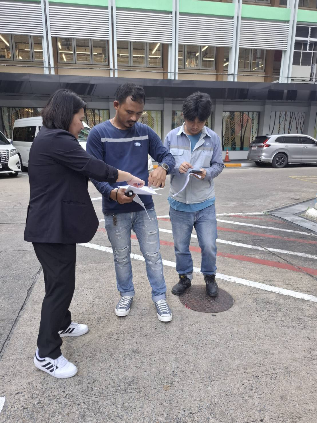
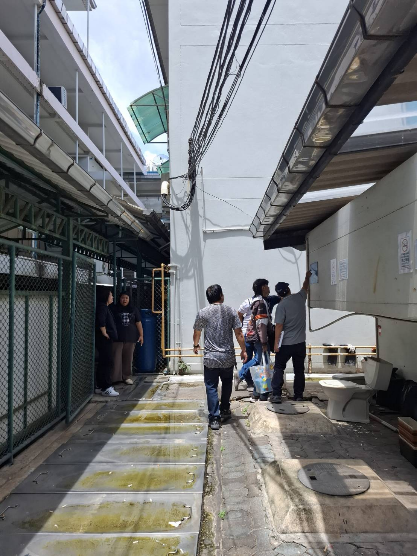
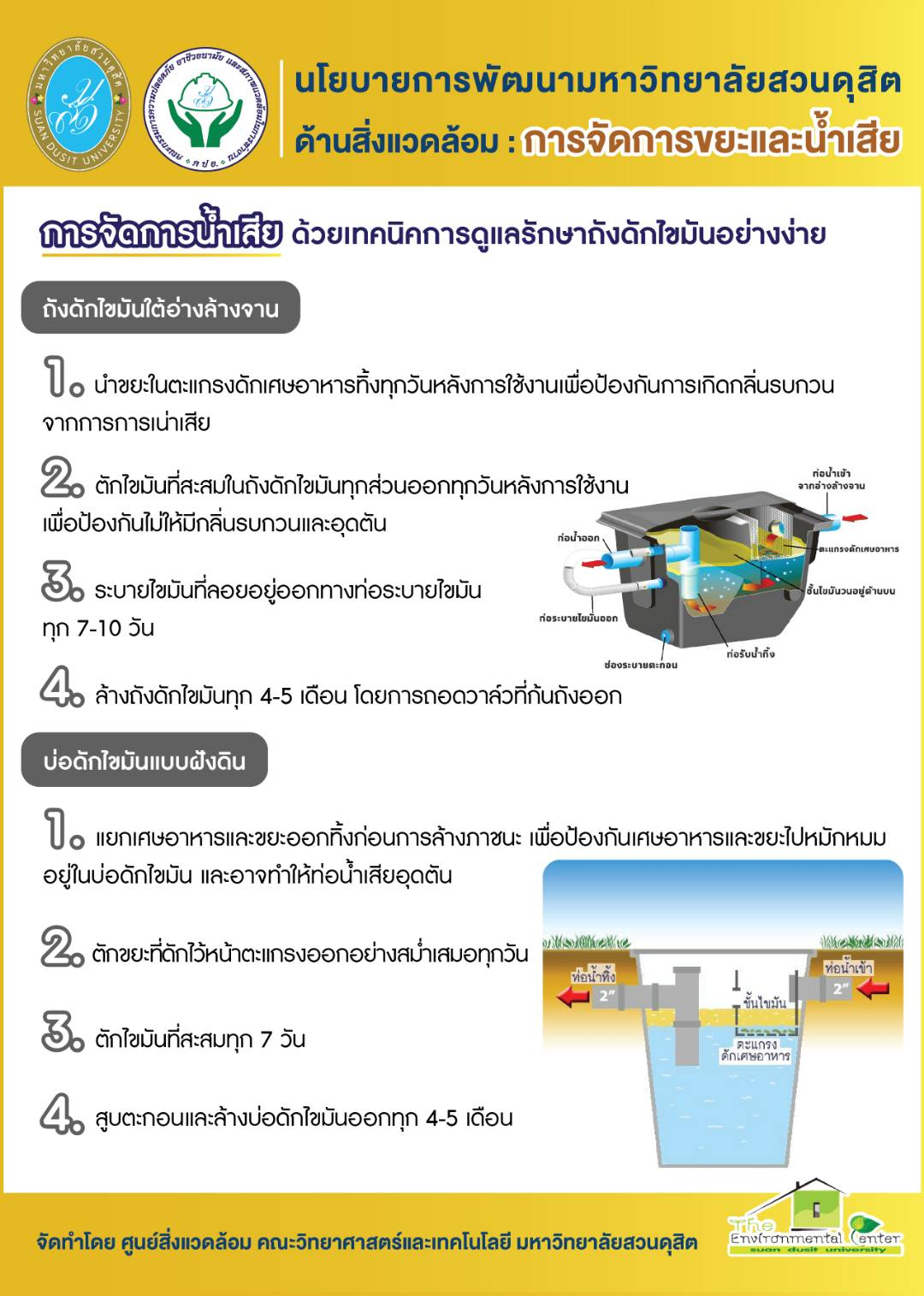
- Effluent Quality Monitoring: The University conducts regular monitoring of wastewater quality by submitting samples for analysis to the Environmental Center’s laboratory, which is accredited under ISO/IEC 17025. The results confirm that the quality of discharged water complies with the standards set by the Ministry of Natural Resources and Environment.
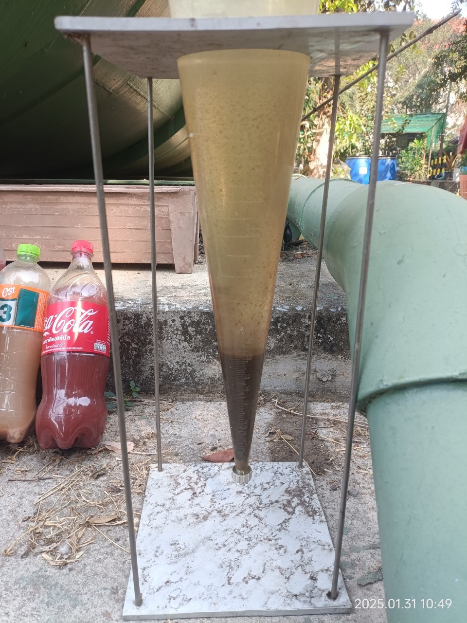
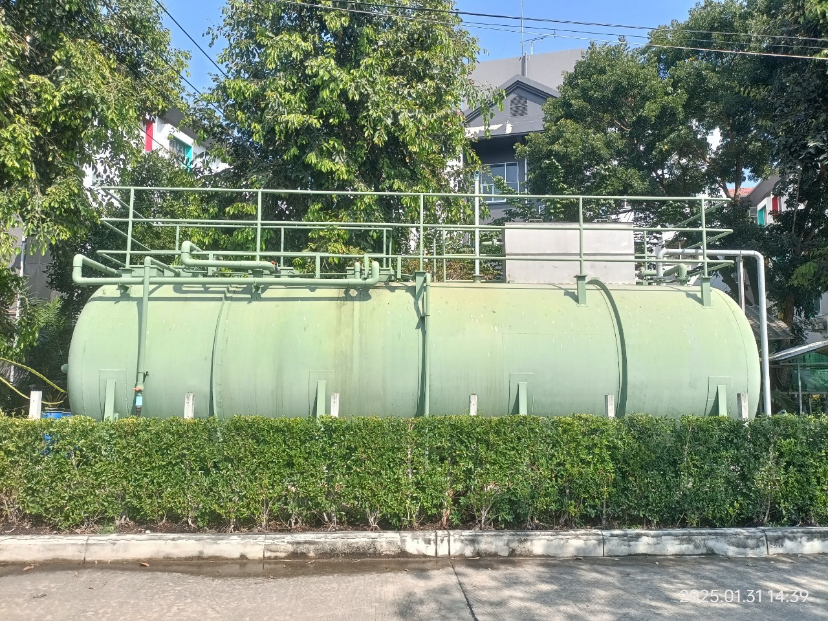
- Water Reuse: Suan Dusit University reuses approximately 20 cubic meters of treated wastewater from the Waew Thiangtham Building for landscape irrigation within the campus. Additionally, at the Suphan Buri Campus, treated water is reused for agricultural and landscaping purposes and shared with nearby communities for agricultural use. This initiative aligns with the University’s Environmental, Energy, and Resource Quality Management Policy, announced on 18 August 2022, particularly Clause 6, which promotes and enhances the efficiency of management systems for waste, hazardous waste, wastewater, air, chemicals, and other pollutants, while emphasizing the effective reuse of water in accordance with established standards to minimize environmental impacts.
Diagram of the Waew Thiangtham Building Water System

- Process of Wastewater Treatment and Water Reuse
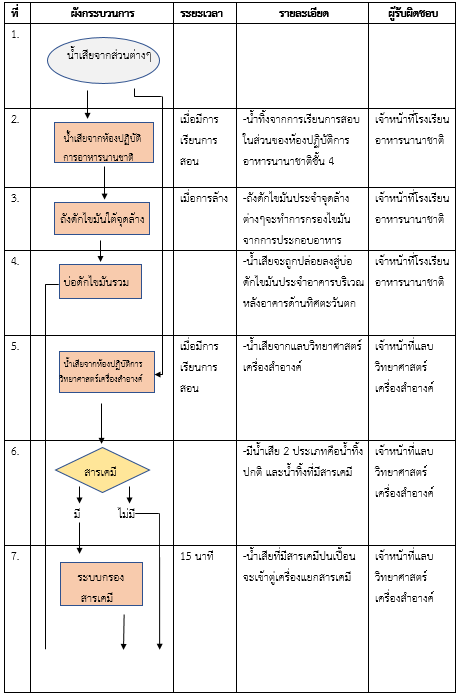
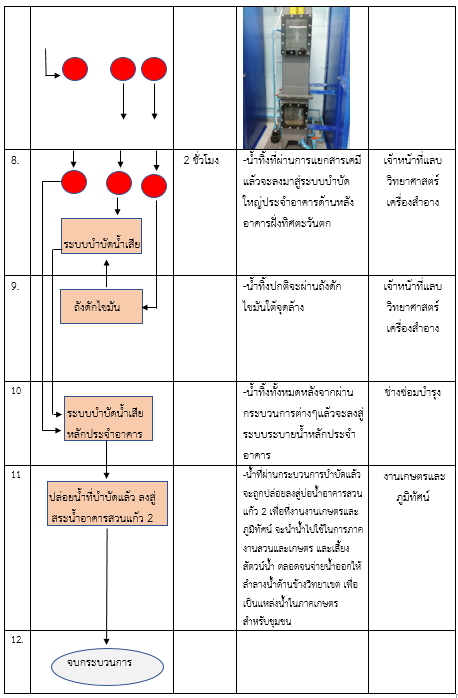
Core Principle 3: Access to Clean and Safe Drinking Water
SDU places great importance on maintaining the hygiene and well-being of its community by ensuring access to clean and safe drinking water for everyone.
- Tap Water: The main water sources are the Metropolitan Waterworks Authority for the main campus and the Provincial Waterworks Authority for regional campuses and education centers. All campuses maintain emergency water reserves and implement water quality improvement measures if residual chlorine levels fall below the standard threshold. Additionally, the water storage tanks are cleaned annually by the Metropolitan Waterworks Authority to ensure cleanliness and good hygiene.
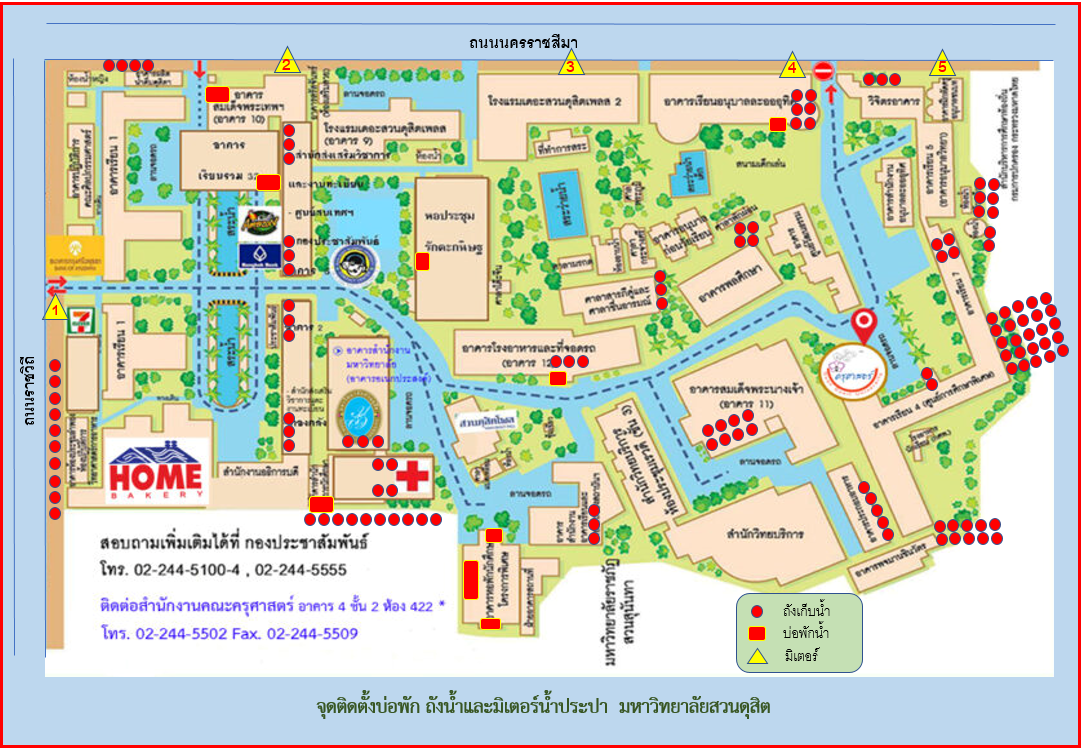
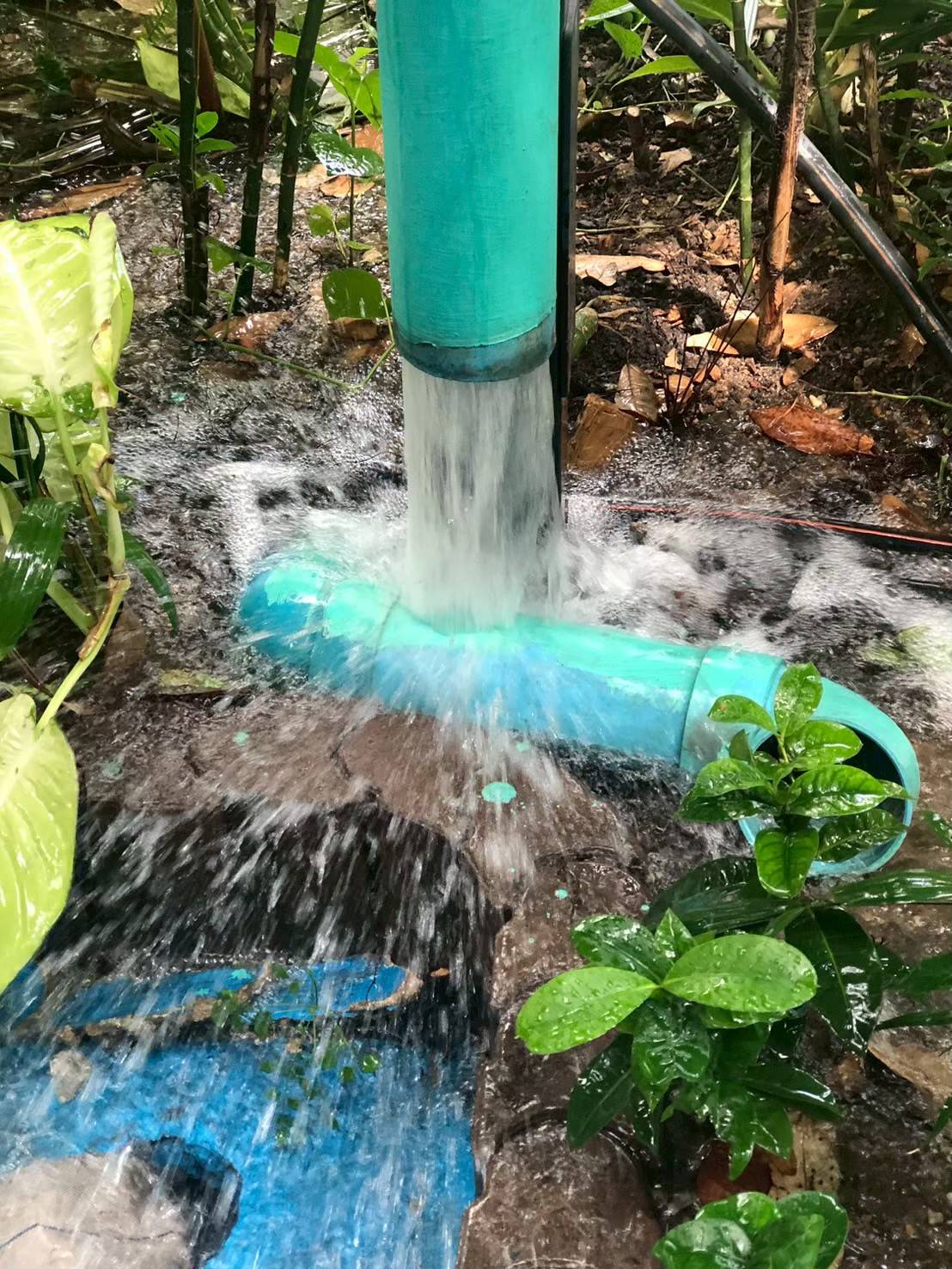
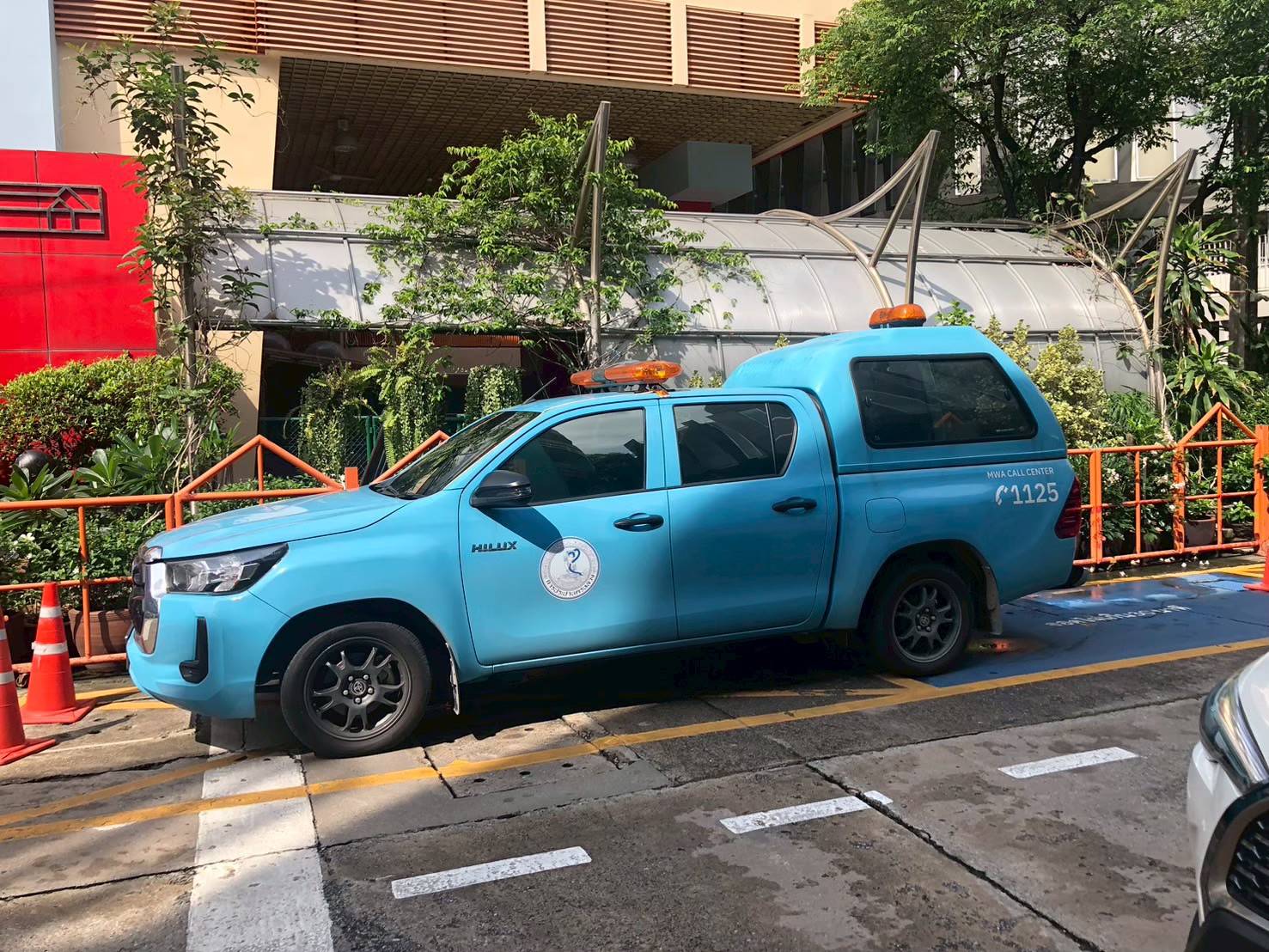
- Drinking Water Stations: A total of 103 free drinking water stations have been installed across the main campus, regional campuses, and education centers, providing a total of 24.96 cubic meters of clean and safe drinking water.
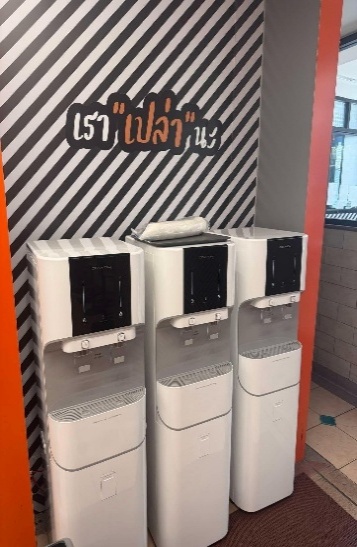
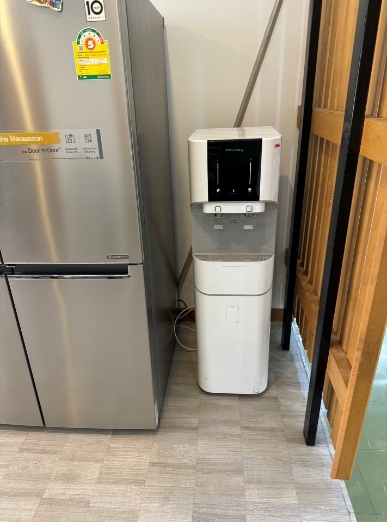
- Quality Monitoring: Water samples from these drinking stations are collected and analyzed every three months at the Environmental Center laboratory. The analysis results confirm that the water quality meets the standards set by the Department of Health. This initiative promotes good public health and helps reduce the use of single-use plastic bottles.
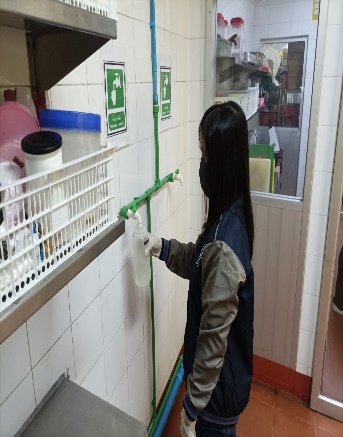
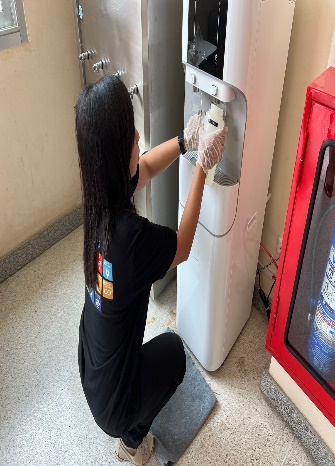
Core Principle 4: Integrated Water Resource Management and Community Service (Water Stewardship & Outreach)
SDU’s water management initiatives extend their impact to the community and the environment.:
- Flood Management and Maintenance: The university has established an annual action plan to prevent and mitigate the impacts of flooding on the wastewater treatment system. This includes cleaning, waste collection, and drainage maintenance at least twice a year, as well as sludge removal at least every three months.
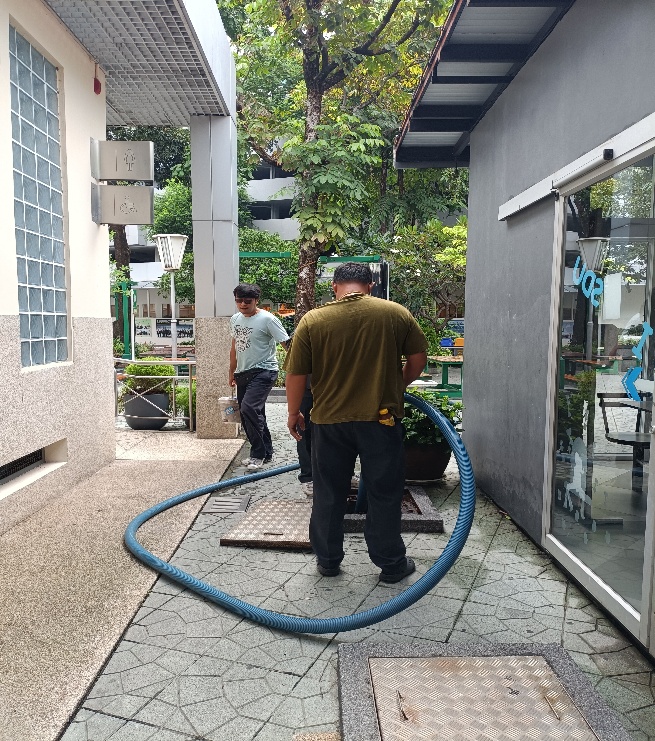
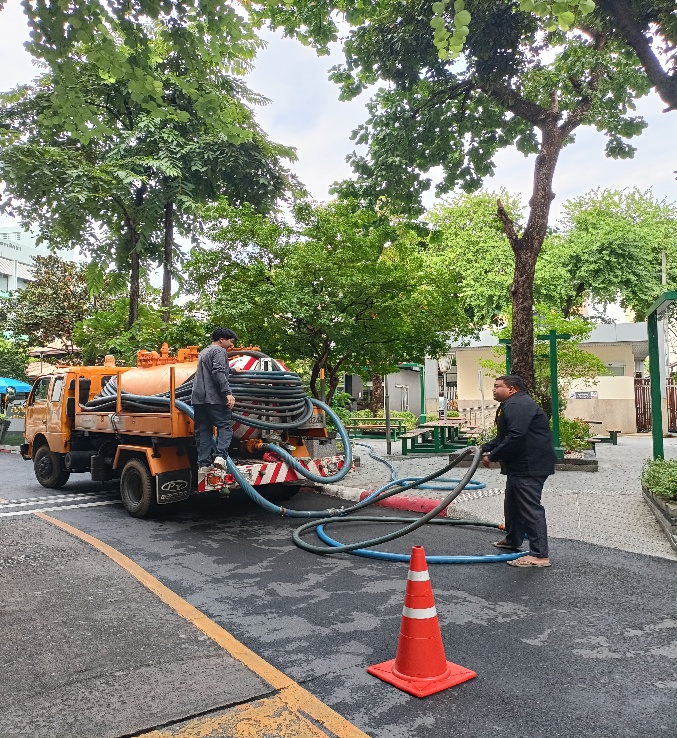
- Sustainable Use of Groundwater Resources: Suan Dusit University has installed groundwater production systems at the Suphan Buri Campus, Lampang Education Center, and Trang Education Center. At the Suphan Buri Campus, a solar-powered groundwater pumping system is utilized to produce drinking water, demonstrating the University’s commitment to sustainable water extraction and reducing reliance on municipal water supplies.
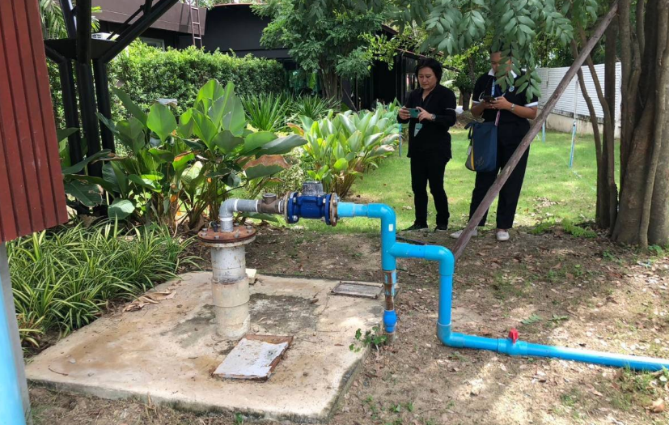
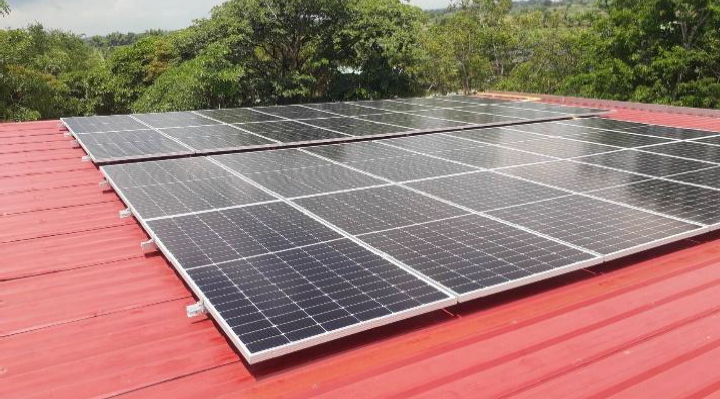
- Promotion of Water-Efficient Agriculture (Outreach): Through the “Hom Khajorn Farm” project at the Suphan Buri Campus, the University has established a model learning center for modern agriculture. The initiative promotes the cultivation of water-efficient economic crops, such as melons and aloe vera, as well as various household vegetables. This project enhances area-based resource management and creates sustainable income opportunities for local communities, aligning with SDG 2 (Zero Hunger).
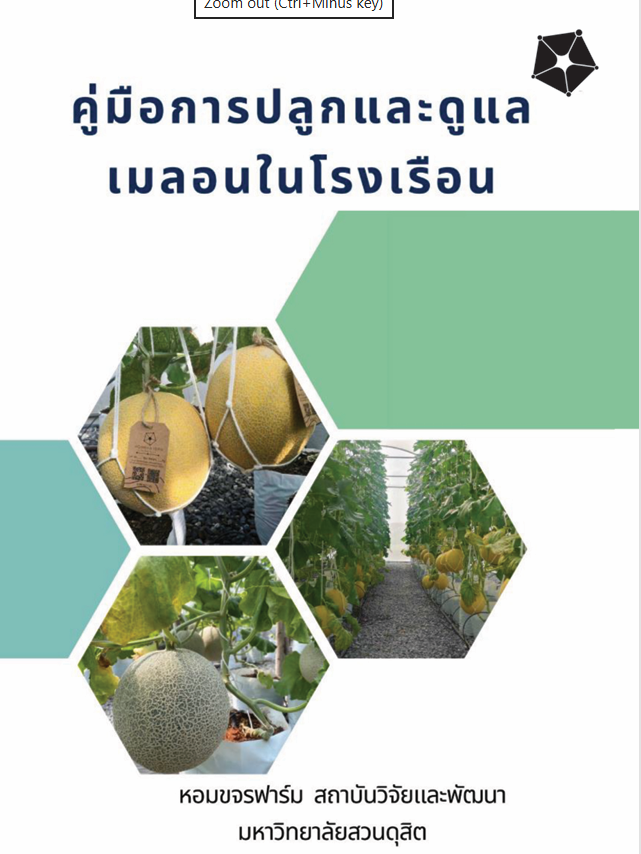
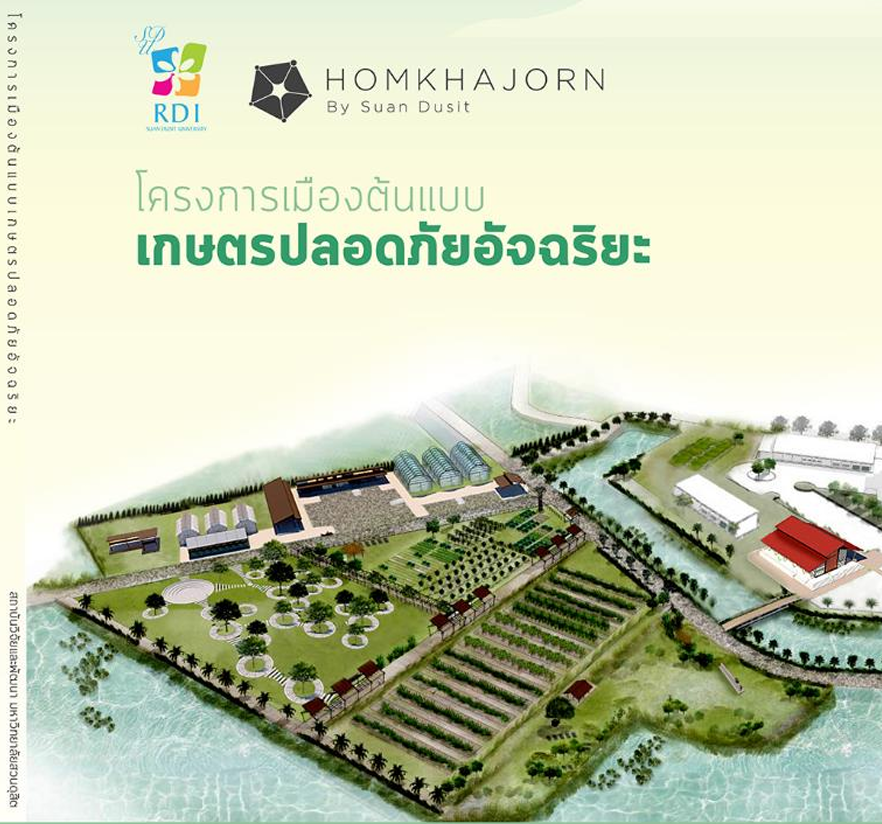
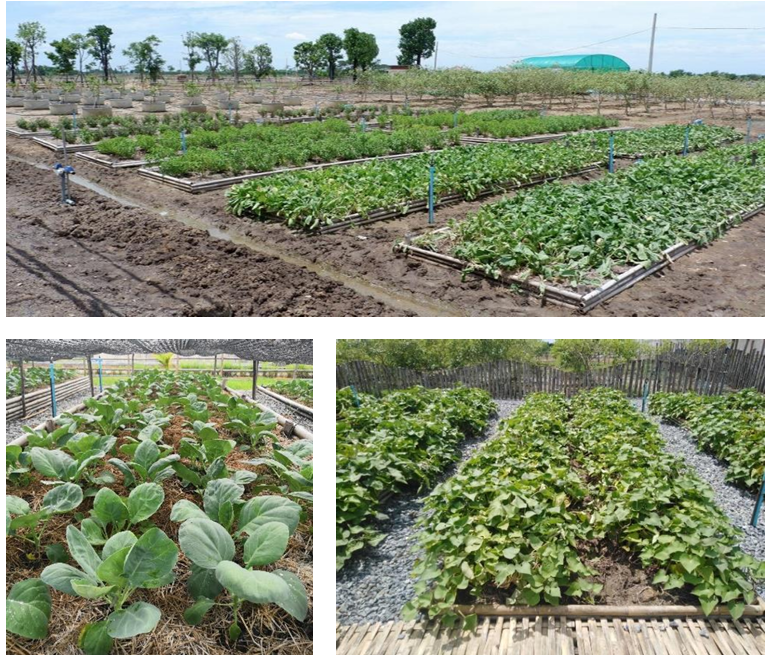
These initiatives reaffirm Suan Dusit University’s strong commitment to becoming a leader in integrated water management — encompassing water use, treatment, reuse, and knowledge sharing with society — in full alignment with SDG 6 (Clean Water and Sanitation) and the THE Impact Rankings 2026.
